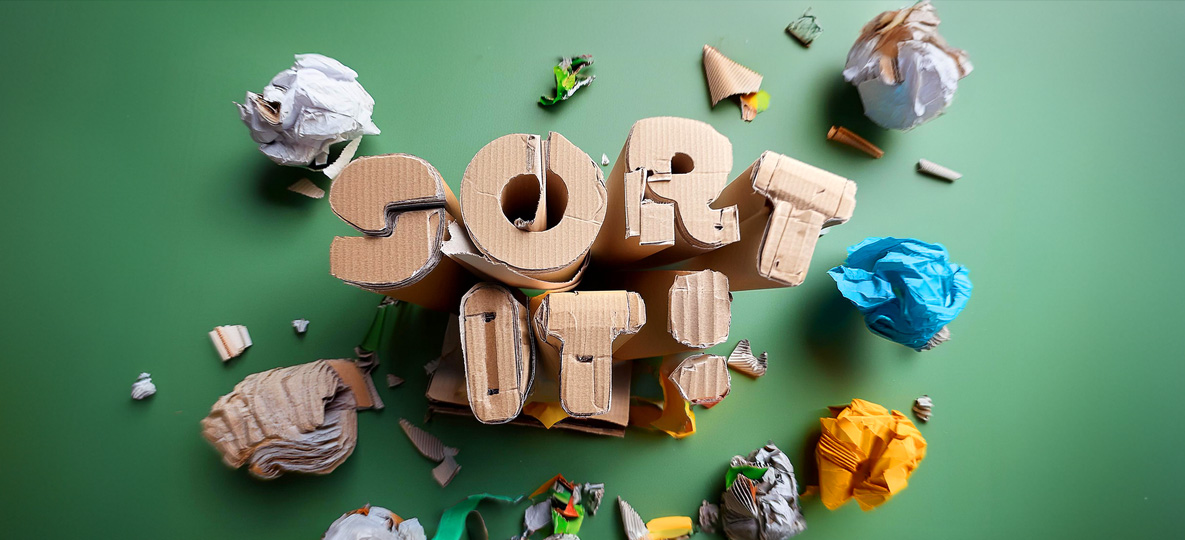The Importance of Separating Paper Waste

Separating paper waste is a vital practice that contributes to reducing contamination, recovering valuable materials for recycling, and decreasing the demand for new paper.
Proper waste segregation is essential for effective recycling and sustainability efforts. One of the critical materials that require careful separation is paper.
The Importance of Separating Paper Waste
In this blog post, we’ll discuss the importance of separating paper waste to (a) reduce contamination of recyclables, (b) recover paper waste for recycling into new products, and (c) decrease the need for tree harvesting.
Reducing Contamination of Recyclables
Contamination is a significant issue in the recycling process. When paper waste is mixed with non-recyclable materials or food waste, it can contaminate the entire batch, making it difficult to recycle.
Impact of Contamination:
- Quality Degradation: Contaminated paper lowers the quality of recycled paper products.
- Increased Costs: Additional sorting and cleaning processes are required to remove contaminants, increasing operational costs.
- Landfill Overflow: Contaminated recyclables often end up in landfills, contributing to waste management challenges.
In Ireland, contamination rates are a concern. While the country has made significant strides in recycling, maintaining high-quality streams of recyclable paper is essential to improve overall efficiency (Home) (Repak).
Recovering Paper Waste for Recycling into New Products
Proper segregation of paper waste ensures that these materials can be efficiently processed and recycled into new products. This is crucial for sustaining a circular economy where materials are reused and repurposed.
Benefits of Recycling Paper:
- Resource Efficiency: Recycling paper conserves natural resources by reusing fibres.
- Energy Savings: The process of recycling paper uses less energy compared to producing new paper from raw materials.
- Environmental Protection: By recycling paper, we reduce the need for landfills and decrease pollution associated with paper production.
In 2021, Ireland achieved a paper recycling rate of 75%, showcasing the potential of effective paper waste segregation (Repak) (TheJournal).

Reducing the Need for Tree Harvesting
One of the most significant benefits of recycling paper is the reduction in the demand for new paper, which directly impacts tree harvesting. By recycling paper, we can help conserve forests and protect biodiversity.
Advantages of Reducing Tree Harvesting:
- Conservation of Forests: Reducing the demand for new paper helps preserve forests, which are vital for maintaining ecological balance.
- Lower Carbon Footprint: Trees absorb carbon dioxide, and by conserving forests, we help mitigate climate change.
- Biodiversity Protection: Forests are home to a wide variety of species. Reducing tree harvesting helps protect these habitats.
Ireland’s commitment to recycling paper contributes significantly to forest conservation efforts. By recycling more paper, we can reduce the pressure on forests and promote sustainable forestry practices (Central Statistics Office) (Repak).
Steps to Proper Paper Waste Segregation
- Identify and Separate: Clearly distinguish between different types of paper (e.g., office paper, newspapers, cardboard) and ensure they are separated from other waste streams.
- Keep It Clean and Dry: Ensure paper waste is free from food residues and other contaminants.
- Use Proper Bins: Utilise bins specifically designated for paper to avoid cross-contamination with other recyclables.
- Educate and Encourage: Raise awareness among household members and the community about the importance of proper paper waste segregation.
Conclusion
Separating paper waste is a vital practice that contributes to reducing contamination, recovering valuable materials for recycling, and decreasing the demand for new paper. Ireland’s progress in paper recycling highlights the importance of continued efforts in waste segregation. By participating in the ‘Sort It’ campaign, we can collectively work towards a more sustainable and environmentally-friendly future.




